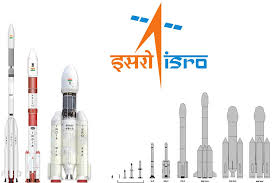ISRO- JAXA review cooperation on Lunar polar exploration
The Indian Space Research Organisation (ISRO) and Japan Aerospace Exploration Agency (JAXA) reviewed their cooperation, on March 11, 2021, in the space arena including the earth observation, lunar cooperation and satellite navigation.
Highlights
The space agencies from both the countries also agreed to explore the opportunities regarding the cooperation in “space situational awareness and professional exchange programme”. The agencies signed the Implementing Arrangement in order to collaborate for activities on rice crop area and air quality monitoring using the data from satellites.
LUPEX mission
LUPEX mission is the joint Lunar Polar Exploration Mission on which India and Japan are already working. Both the agencies are working on the mission and have aimed to send a lander and rover to the south pole of the Moon by the year 2024 or so.
India’s Collaborations on Moon Missions
Recently, India had collaborated with Italy in order to explore the opportunities in space science, earth observation, robotic & human exploration. In the month of February 2021, India had signed an agreement with Australia which amended the existing MoU. The agreement will build on Comprehensive Strategic Partnership. India and Australia are also discussing that Australia should host the vital tracking infrastructure to provide its support for the Gaganyaan manned space flight mission.
About Gaganyaan
It is an Indian crewed orbital spacecraft of Indian Human Spaceflight Programme. It is being designed so as to carry three people. It will also carry a planned upgraded version equipped with the rendezvous and docking capability. This will be the first crewed mission of Indian Space Research Organisation. The spacecraft will orbit the Earth at 400 km altitude for up to seven days with two or three-person on board. The mission was planned to be launched on ISRO’s GSLV Mk III in December 2021 but it has been delayed to 2023. The crew module is being manufactured by Hindustan Aeronautics Limited (HAL) while it has been designed by Defence Research and Development Organisation (DRDO). DRDO will also provide support for critical human-centric systems and technologies such as crew healthcare, space grade food, parachutes for safe recovery, radiation measurement and protection and fire suppression system.
Month: Current Affairs - March, 2021


